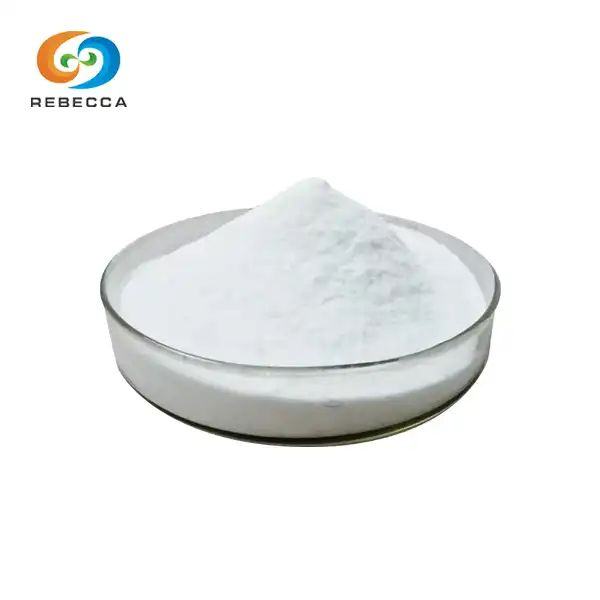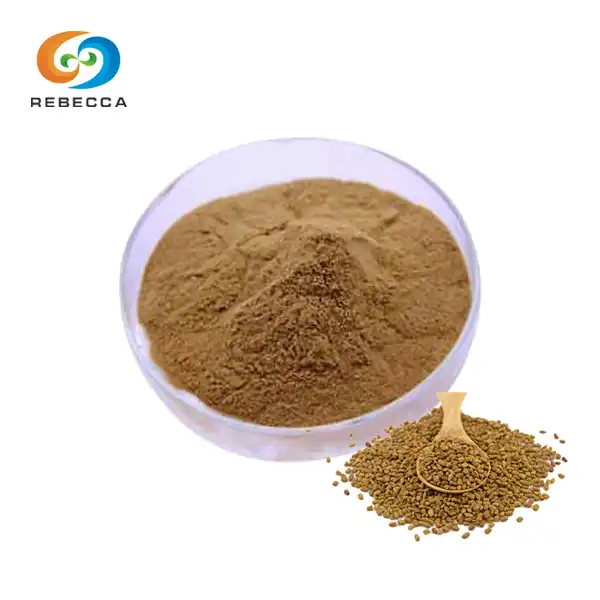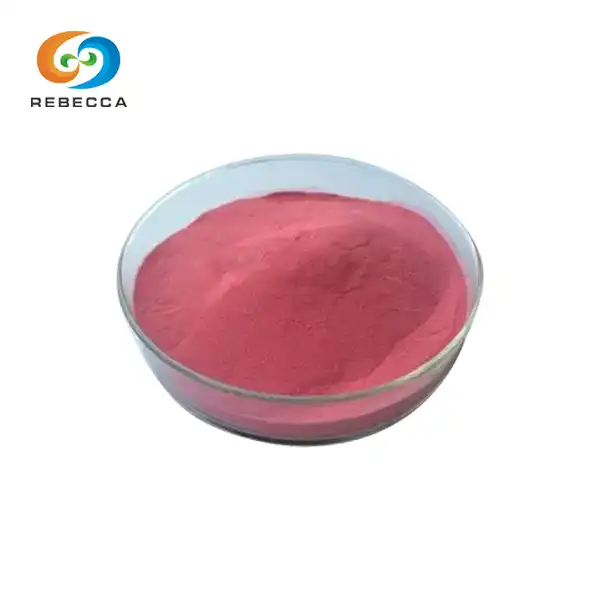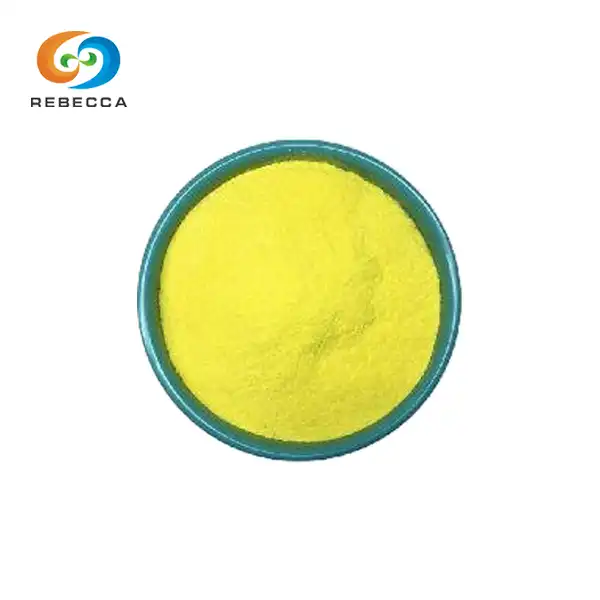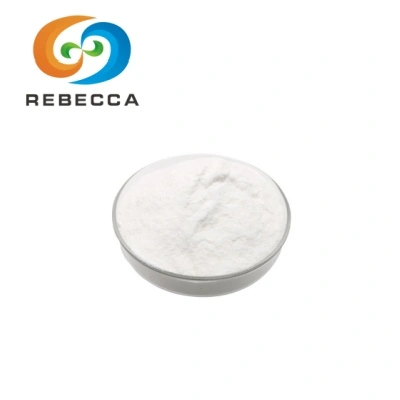Does creatine monohydrate cause weight gain?
Creatine monohydrate is a popular supplement among athletes and fitness enthusiasts, known for its potential to enhance muscle performance and recovery. However, one common question that arises is whether creatine monohydrate causes weight gain. In this article, we'll explore the relationship between creatine supplementation and weight changes, addressing the different factors that contribute to this phenomenon.
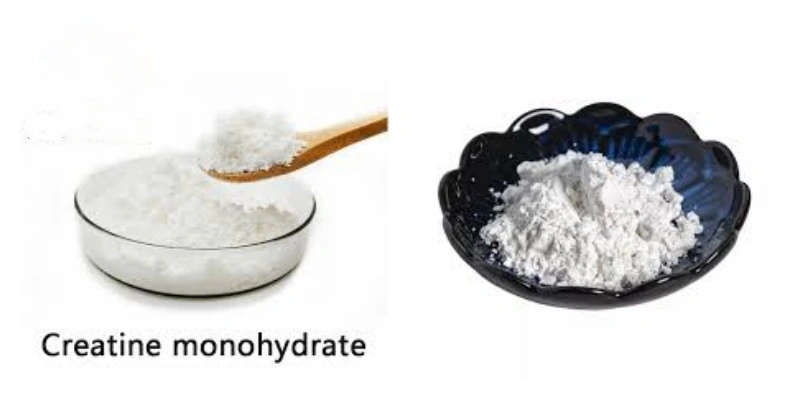
Water Retention
One of the primary reasons why creatine monohydrate is associated with weight gain is its effect on water retention. When you start taking creatine monohydrate powder, your muscles tend to retain more water. This occurs because creatine draws water into your muscle cells, a process known as cell volumization.
The increased water content in your muscles can lead to a rapid increase in body weight, typically within the first few days or weeks of supplementation. It's important to note that this weight gain is not fat gain, but rather an increase in intracellular fluid.
Some key points about water retention and creatine:
- Initial weight gain is primarily due to increased water content in muscles
- This effect is temporary and tends to stabilize after a few weeks
- The additional water in muscle cells may contribute to a fuller, more pumped appearance
- Increased hydration can potentially improve exercise performance
Increased Muscle Mass
While the initial weight gain from creatine supplementation is largely attributed to water retention, long-term use of creatine monohydrate can indeed contribute to actual increases in muscle mass. This is where the supplement's true benefits come into play.
Creatine works by increasing the availability of adenosine triphosphate (ATP) in your muscles. ATP is the primary source of energy for muscle contractions during high-intensity, short-duration activities like weightlifting. By enhancing ATP availability, creatine allows you to perform more reps or lift heavier weights, potentially leading to greater muscle growth over time.
Here's how creatine can contribute to muscle mass gains:
- Improved exercise performance can lead to more effective workouts
- Enhanced muscle recovery may allow for more frequent training sessions
- Increased cell hydration can create an anabolic environment conducive to muscle growth
- Creatine may stimulate the expression of genes related to muscle protein synthesis
It's crucial to understand that while creatine can support muscle growth, it's not a magic solution. The increase in muscle mass still requires consistent training and proper nutrition. Creatine acts as a tool to enhance your body's natural muscle-building processes.

Amount of Weight Gain
The amount of weight gain experienced when taking creatine monohydrate powder can vary significantly from person to person. Several factors influence the extent of weight gain, including:
- Individual response to creatine supplementation
- Initial muscle creatine stores
- Body composition and muscle mass
- Dosage and loading strategy
- Diet and training regimen
On average, users may experience a weight gain of 2-5 pounds (0.9-2.3 kg) during the first week of creatine supplementation, primarily due to water retention. Over the long term, additional weight gain may occur as a result of increased muscle mass, but this is generally a gradual process.
It's worth noting that not everyone will experience significant weight gain from creatine use. Some individuals, particularly those with naturally high muscle creatine levels or those who consume a diet rich in creatine sources (like red meat and fish), may see minimal changes in body weight.
To better understand how creatine affects your body, consider these approaches:
- Keep a log of your weight, measurements, and performance metrics
- Use body composition testing methods to differentiate between water, muscle, and fat gain
- Pay attention to how your clothes fit and your overall appearance, not just the number on the scale
- Consult with a healthcare professional or registered dietitian for personalized advice

In conclusion, while creatine monohydrate can indeed cause weight gain, it's important to understand the nature of this increase. The initial weight gain is primarily due to water retention, while long-term use may contribute to lean muscle mass gains when combined with proper training and nutrition. If you're considering using creatine, it's crucial to have realistic expectations and focus on overall body composition and performance improvements rather than just the number on the scale.
At Rebecca Bio-Tech, we pride ourselves on providing high-quality, pure creatine monohydrate powder that meets the highest standards of effectiveness and safety. If you have any questions about our products or would like to discuss your specific needs, please don't hesitate to contact us at information@sxrebecca.com. Our team of experts is always ready to help you achieve your fitness and performance goals.
References:
- Cooper, R., et al. (2012). Creatine supplementation with specific view to exercise/sports performance: an update. Journal of the International Society of Sports Nutrition, 9(1), 33.
- Kreider, R. B., et al. (2017). International Society of Sports Nutrition position stand: safety and efficacy of creatine supplementation in exercise, sport, and medicine. Journal of the International Society of Sports Nutrition, 14, 18.
- Antonio, J., & Ciccone, V. (2013). The effects of pre versus post workout supplementation of creatine monohydrate on body composition and strength. Journal of the International Society of Sports Nutrition, 10, 36.
- Tarnopolsky, M. A. (2010). Caffeine and creatine use in sport. Annals of Nutrition and Metabolism, 57(Suppl. 2), 1-8.
- Gualano, B., et al. (2012). Creatine supplementation in the aging population: effects on skeletal muscle, bone and brain. Amino Acids, 42(1), 349-357.
